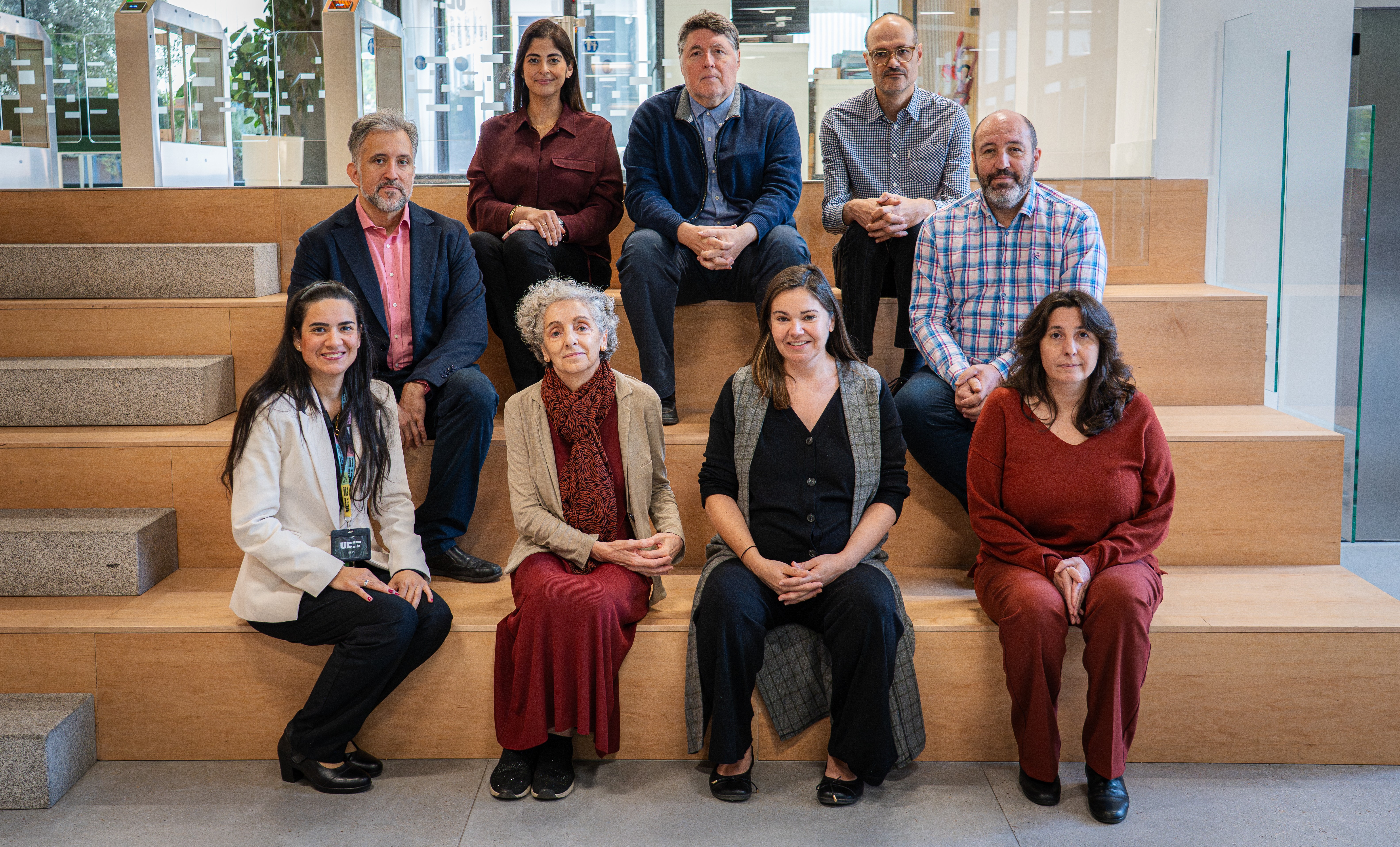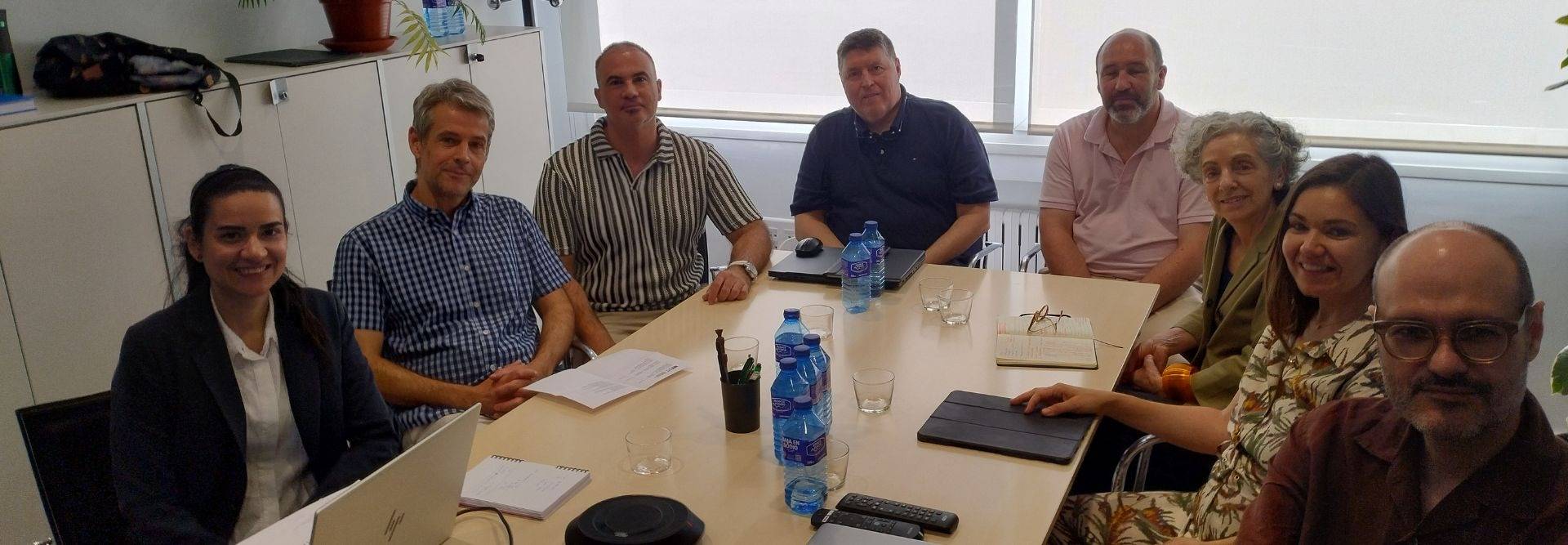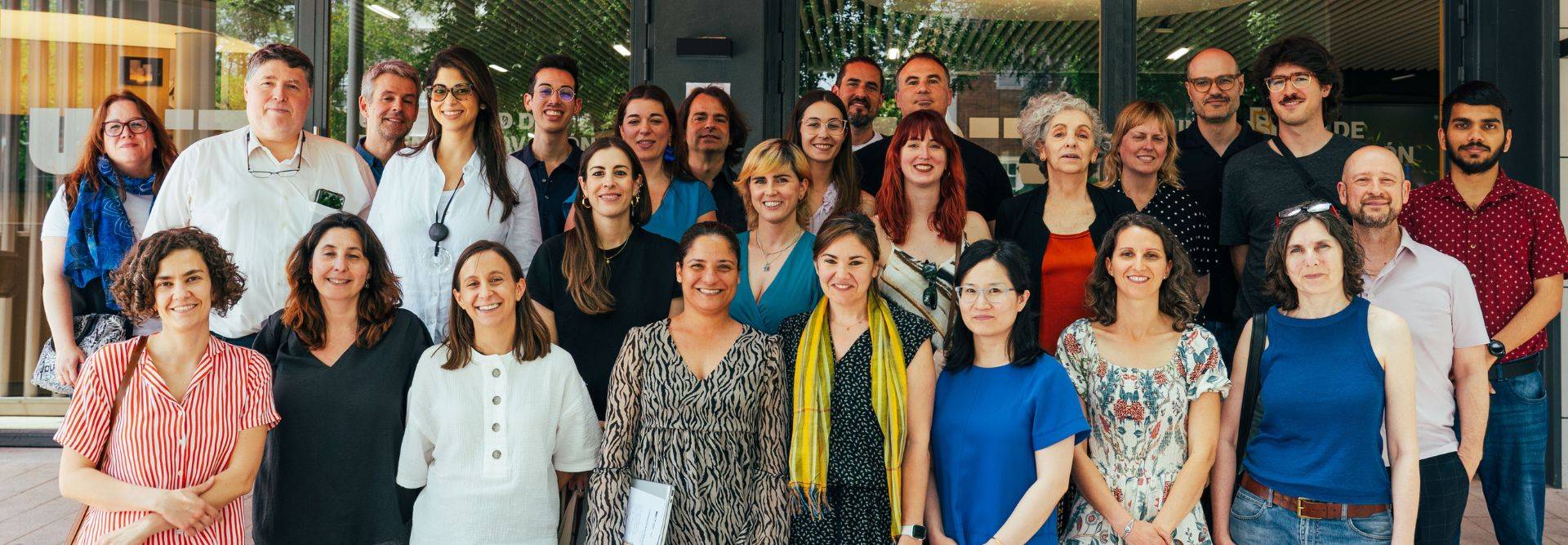

Research Ethics Committee (REC)
Contact
For detailed information on the procedures and protocols for the ethical evaluation of your project at UDIT contact: comite.etica.investigacion@udit.es
Composition of the committee
The composition of the ERC is interdisciplinary. It respects the independence and impartiality of its members with respect to project promoters and researchers in accordance with current legislation.
It is composed of a chairman, a secretary and several members.
Each member has training and experience in research ethics.
When the Committee considers it appropriate, it may seek the opinion of external experts.
Committee members are appointed by the Rector, at the proposal of the Vice-Rector for Research.
Members of the Committee
Dr. Jose Luis Olazagoitia (President) Dr. Rafael Timón (Secretary) Dr. María Beltrán (Vocal) Dr. Rafael Conde Melguizo (Volcal) Dr. Eva Hurtado (Vocal) Dr. Luis Peña (Vocal) Dr. Luis Peña (Vocal) Dr. Rafael Conde Melguizo (Volcal) Dra. Luis Peña (Member) Dra. Bárbara Castillo Abdul (Vocal) Dr. David Rosas Espín (Vocal) Dr. María del Mar Martínez Oña (Vocal)






Dr. Luis Peña
PhD in Computer Engineering from the Universidad Rey Juan Carlos. Founder of a Technology Startup, awarded by A



Functions of the REC
The ERC has a consultative and certifying character and its three main functions are as follows:
- To evaluate and certify the ethical suitability of the studies carried out by the permanent staff of the University of Design, Innovation and Technology, reviewing all aspects associated with human experimentation and ensuring compliance with current international regulations.
- To evaluate and certify the ethical suitability and compliance with the basic precepts established at international level of global projects that will be submitted for evaluation in any of the current calls for proposals by the permanent staff of the University of Design, Innovation and Technology.
- Respond to queries on scientific integrity and ethical compliance in research, formulated by the staff of the University of Design, Innovation and Technology.
- To ensure compliance with good research practice and to make such recommendations as it deems appropriate.
- Any other function attributed to it by current legislation.
When should I submit my research to the ethical review process?
All studies involving human subjects or personal data must be evaluated by the IRB (UDIT) prior to initiation.
In animal studies, animal welfare and responsible use regulations must be complied with and must therefore be governed by the law in question. Consult the BOE: Ley 7/2023, de 28 de marzo, de protección de los derechos y el bienestar de los animales, through the following link.
ERC action restrictions
The CEI will not evaluate or certify in the following cases:
- If applications have been submitted by persons without a permanent contractual link with the University of Design, Innovation and Technology.
- If the projects or studies have already been initiated or executed and certification is requested a posteriori.
- If the conflict goes beyond the scope of scientific research, including administrative or labour disputes.
- Clinical trials with medicinal products, regulated in Royal Decree 1090/2015, of 4 December, which regulates clinical trials with medicinal products, the Ethics Committees for Research with medicinal products and the Spanish Register of Clinical Studies, and biomedical research with biological human samples or involving invasive procedures on human beings, regulated in Law 14/2007, of 3 July, on biomedical research, are excluded from the scope of competence of the REC.
The actions of the Committee shall comply with current legislation, with nationally and internationally recognised scientific protocols and with the recommendations established by the different national and international bodies and committees with competence in these matters.
REC Code of Ethics
The Ethics Committee shall act on the basis of the following principles:
- Respect for human dignity or all research shall ensure that the rights, privacy and welfare of participants are protected.
- Autonomy and informed consent o Study participants shall be required to provide their free and informed consent before being included in any research.
- Beneficence and non-maleficence o Maximise the benefits and minimise the risks of studies.
- Fairness and equity o The distribution of benefits and burdens of research should be equitable, avoiding exploitation of vulnerable populations.
- Scientific integrity o Research must be conducted with methodological rigour and transparency in the presentation of data.
- Confidentiality and data protection o Compliance with regulations on personal data protection and handling of sensitive information will be required.
- Independence and absence of conflict of interest o The REC's evaluations will be based on scientific and ethical criteria without external influence.
- Non-discrimination.
- Proportionality between risks and expected benefits.
Evaluation procedure
- Investigators requiring ethical evaluation should submit a formal application using the appropriate form, indicating the details of the study and the ethical considerations involved.
- The research protocol, informed consent (if applicable) and any relevant documents should be attached.
- The IRB will receive applications during the first week of each month, excluding the months of July, August and September.
- The secretary of the panel will verify that the documentation is complete before proceeding with the evaluation.
- Each application will be assessed individually by the Secretariat and the three members, using an established rubric to analyse the key ethical aspects.
- Each criterion may be approved, rejected or marked as pending discussion.
- In case of discrepancies, a virtual or face-to-face meeting will be convened to discuss the outstanding points. Regular meetings of the REC shall be held in the third week of each month.
- If there are no doubts, a vote will be taken and a final decision will be taken.
- In the event of a tie, the Chairperson of the REC shall have the casting vote for the final decision.
- Within a maximum of 10 working days after the beginning of each month, the ERC shall issue a response.
- If the opinion is positive, the investigator will receive an official approval document with a unique reference code, which is recommended to be included in any publication resulting from the study.
- If the opinion is negative, the investigator will receive a report detailing the reasons and corrective actions necessary for the re-evaluation of the project.
Application forms
If you are a researcher at UDIT and you are about to develop a study or research project that involves the treatment of data with performance and response of human beings, you must request the ethical review of your project, through the following forms, which must be sent to the email comite.etica.investigacion@udit.es with a copy to the secretary: rafael.timon@udit.es
The documents that you should take into consideration are the following:
- Project evaluation request form (click here to download format, PDF attached).
- Complete research protocol (Document that you must submit, including aspects such as: Title of the Study, Summary, Background, Problem Statement, Justification of the research, Objectives, Hypothesis, Design, Materials and Methods, Study Materials, Design, Collection and analysis.
- Informed consent form given to the research subject (click here to download format, PDF attached).
- Data collection instruments (questionnaires, interviews, etc.).
- Necessary institutional authorisations. For example, (If handling data with children and adolescents, you must attach the certificate of Sexual Offences for natural persons). Download the link to the website here (Certificate of Offences of a Sexual Nature - Procedures - E-Office).
- Data management plan and security measures.
- Other relevant documentation to be included (e.g. letters of acceptance from other ethics committees).
Do you want to submit your project for evaluation to the ERC?
REGULATIONS
The IRB acts in accordance with the provisions set out in the UDIT, which you can download below:
Guide to good practice in research
- Data should be reported honestly, without falsification or manipulation.
- All sources of funding and potential conflicts of interest should be acknowledged.
- Authorship of publications should fairly reflect the contribution of each researcher.
- Any study involving human subjects or personal data must be evaluated by the IRB before it begins.
- Researchers must ensure that participants understand the aims of the study and their rights.
- In animal studies, animal welfare and responsible use regulations must be complied with.
- It is recommended that studies be registered in public databases where applicable.
- Data and methodologies should be described in sufficient detail to allow for reproducibility of the study.
- In case of negative results, these should be reported as rigorously as positive results.
- Principal investigators are responsible for the ethical compliance of the project and for the supervision of their team.
- If ethical problems are identified during the conduct of the study, the investigators must inform the REC and propose solutions.
- Any violation of research ethics will be assessed and may result in sanctions according to institutional regulations.
Projects evaluated
Find out the names of the projects evaluated during the IRB sessions
Motion intention recognition using surface electromyography (sEMG) and electroencephalography (EEG) of the project Data collection of sEMG and EEG while performing three hand gestures.
Principal investigator applicant: María Beltran Rodríguez. CEI-UDIT-2025-06-001 code.
2. NEURO_COlab Classrooms and Urban Spaces.
Principal applicant researcher: María Beltran Rodríguez. CEI-UDIT-2025-06-002 code.
3. Retail and Football: how the shopping experience is constructed.
Principal applicant researcher: Sandra Bravo Durán. CEI-UDIT-2025-06-003 code .
1.Anxiety Monitoring Intelligent Garment (AMIGA)
Principal Investigator Applicant: Dr. Carolina García CEI-UDIT code-2025-09-004
Active Neurodesign in the School Environment: A Multidimensional Strategy to Prevent Childhood Obesity .
Principal Investigator Applicant: Ivette Caldelas Sánchez. ERC Code: CEI-UDIT-2025-10-005
2. Raising awareness of colour blindness in higher education students.
Principal Investigator Applicant: Ester Campos
Neuroarchitecture for neurodivergent people: creation of a wellbeing index of educational spaces for the learning of neurodivergent individuals (NEU4NEU).
Principal investigator applicant: María Beltrán Rodríguez
Annual ethical evaluation reports on research projects
Available in May 2026.
I want to make a complaint
Any university or academic person can report a possible ethical breach of a research project to the REC.
The report can be submitted by
- E-mail to the REC: comite.etica.investigacion@udit.es
News
seat of the ethics committee
C. Alcalá, 506 (International Campus of Design and Creative Industries) 28016 Madrid España / Spain +34 91 555 25 28 ext. 239 |


